
After six seasons and eight years, the popular dystopian series “The Handmaid’s Tale,” inspired by Margaret Atwood’s novel of the same name, has drawn to a close. Although a sequel series titled “The Testaments” is in development, its release date remains undetermined. In the meantime, fans of “The Handmaid’s Tale” are seeking another show to keep them engaged.
There are numerous TV shows that could fulfill the desire usually satisfied by The Handmaid’s Tale, given their shared elements such as similar themes and tones, female leads, and/or settings in a dystopian or religiously-influenced world. For those who appreciate supernatural dramas like Yellowjackets or dystopian narratives like Silo, there is an abundance of engaging content available.
The story unfolds in a setting derived from Hugh Howey’s book series, where a devastating occurrence has rendered Earth into an unsafe wasteland. To provide sanctuary for the survivors, a network of subterranean silos were constructed and maintained over several decades. The ruling elites enforce strict regulations on the inhabitants, discouraging them from investigating the world’s past remnants and instead, imposing a lifestyle governed by rigid, class-based laws. However, when resourceful engineer Jules starts to suspect that things are not as they seem, she unearths an abundance of hidden truths and deceptions.
Silo stands out as a close relative to The Handmaid’s Tale, given its depiction of a regime that shares striking similarities by stratifying people according to class and abilities. Both series maintain an enigmatic atmosphere, withholding truth from their inhabitants while concealing numerous secrets. The oppressive nature of Silo may not revolve around gender, but the sci-fi dystopian drama carries a tyrannical undertone as its leadership functions like a cult, enforcing twisted ideologies under the guise of safeguarding the populace.
In the shocking revelation of Paradise, we discover that the affluent society depicted in the initial episode is hidden beneath the ground. When billionaire Samantha “Sinatra” Redmond suspected the impending doom the world scientist warned about, she took action, partly to divert attention from her personal grief. Consequently, she embarked on creating a utopia that mirrored her ideal world. However, this sanctuary was exclusive, only meant for individuals she deemed deserving of survival.
When Special Agent Xavier Collins uncovers suspicious activities, he uses all his resources to bring Samantha to justice. However, during this investigation, he stumbles upon a chilling truth about the upper echelons of power, indicating that some individuals are disposable while others are not. The narrative themes of good versus evil, protecting families, and living under oppressive, cruel, and malevolent rulers who devalue people as mere human beings are prevalent in both Paradise and The Handmaid’s Tale.
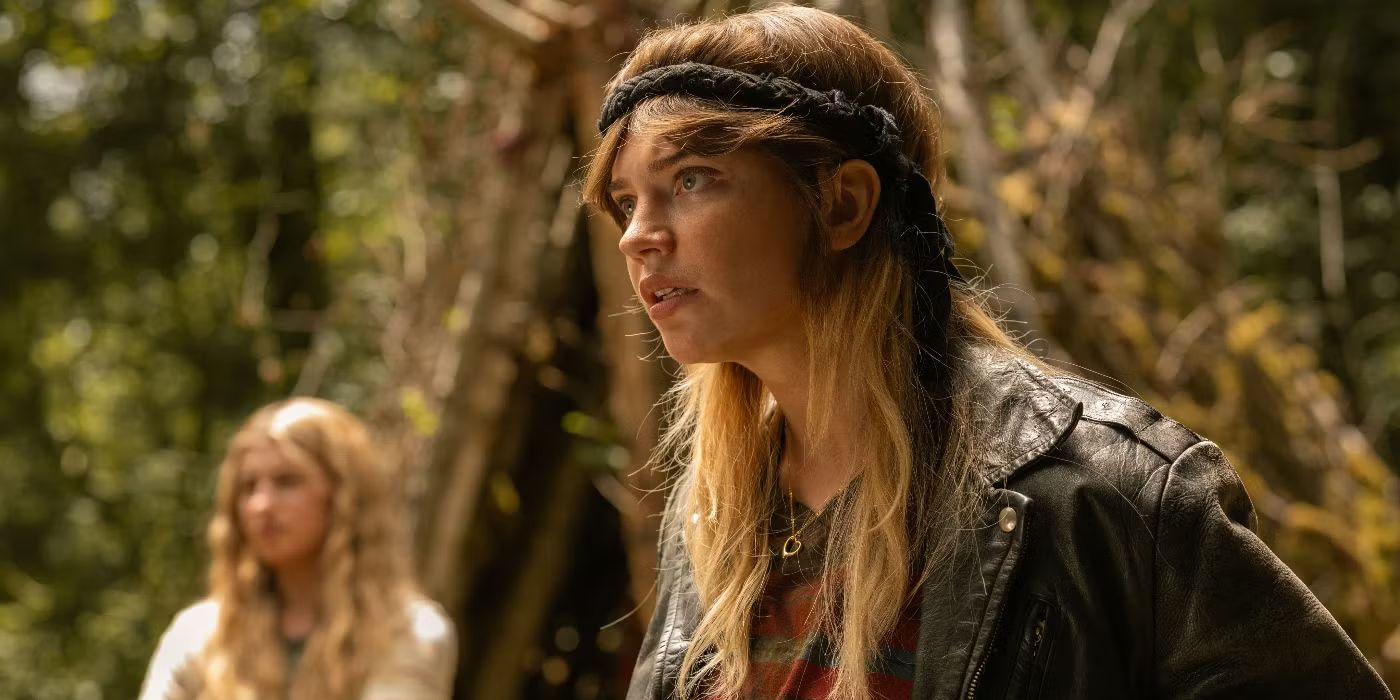

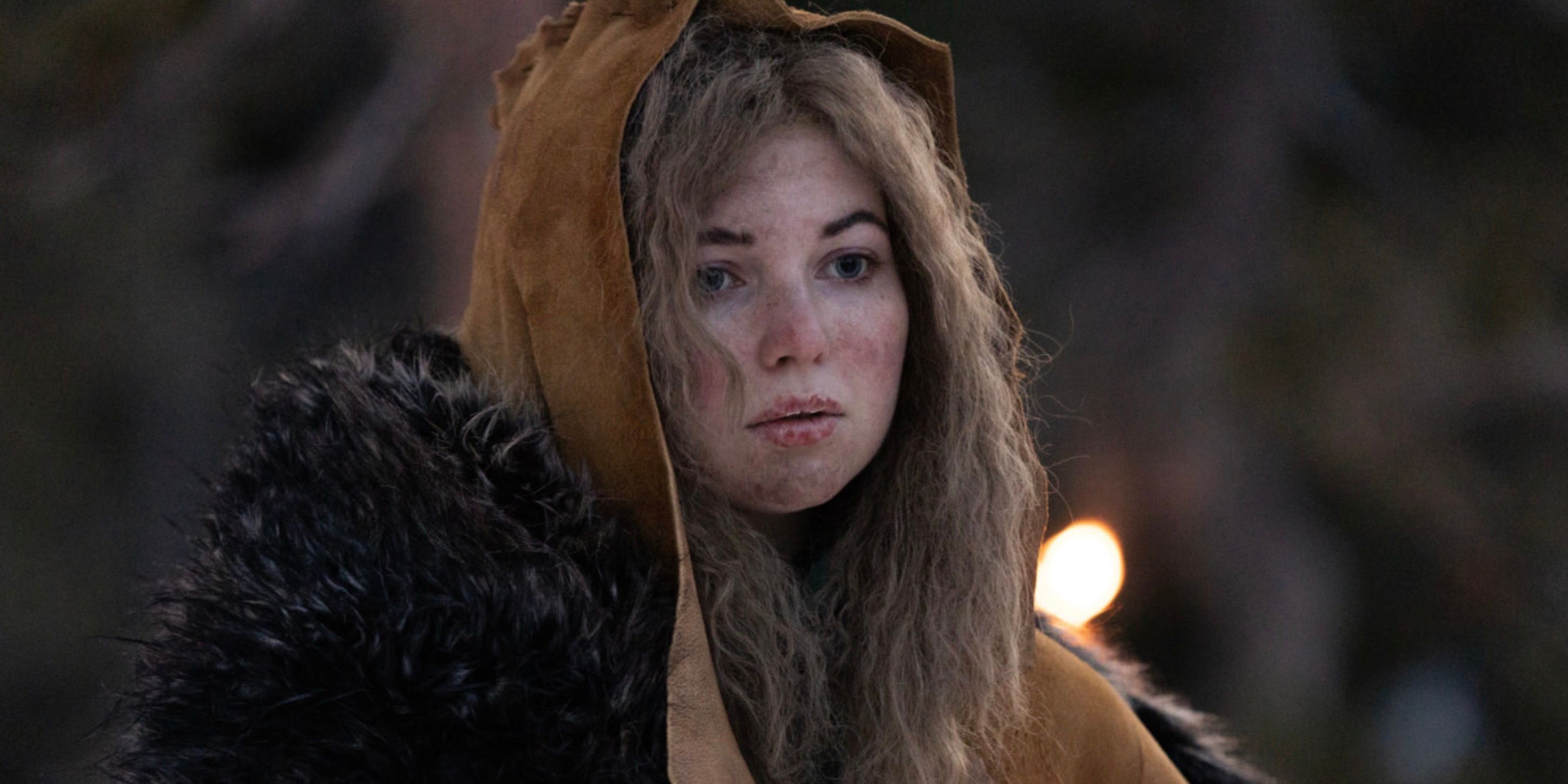
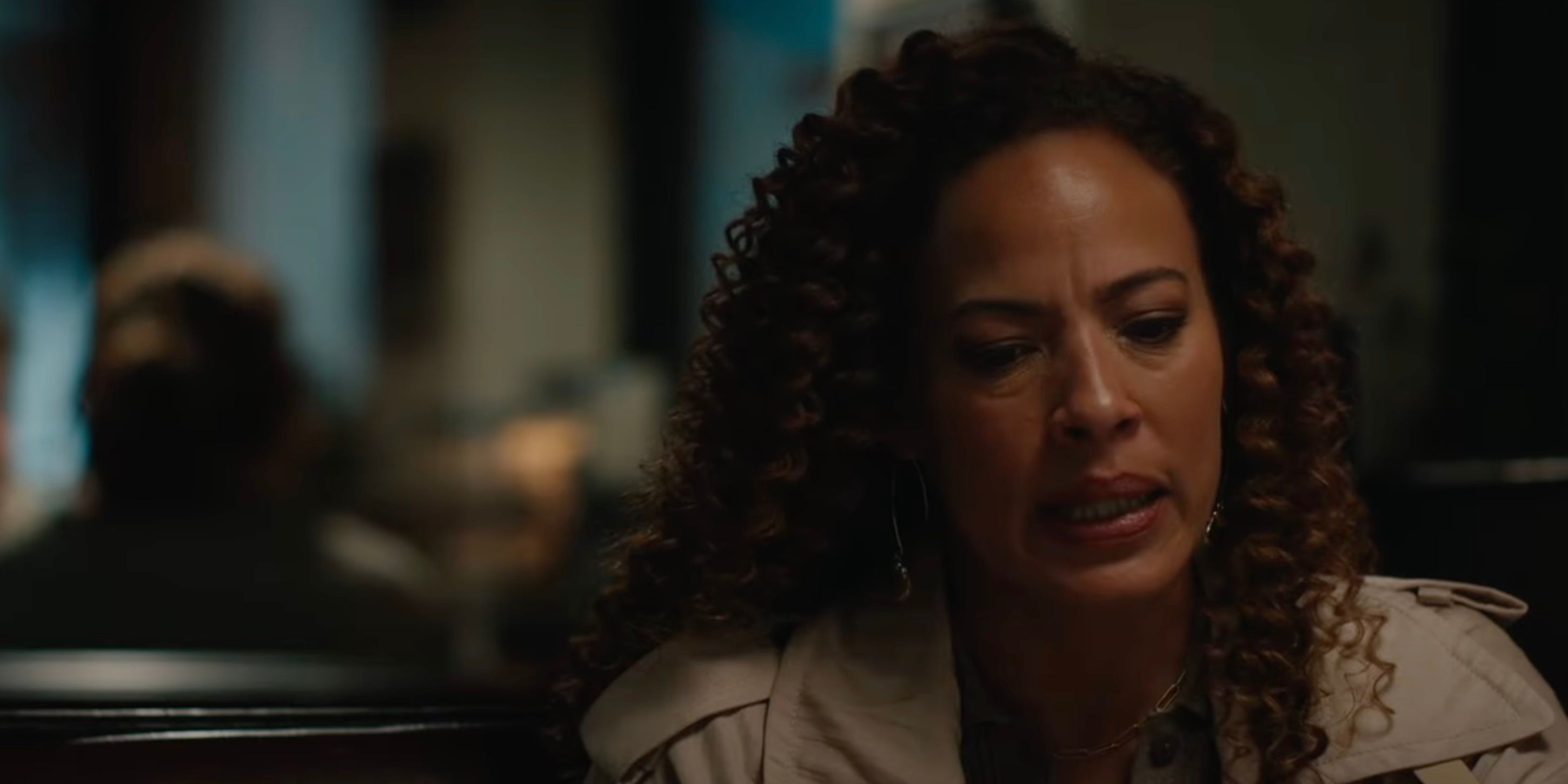
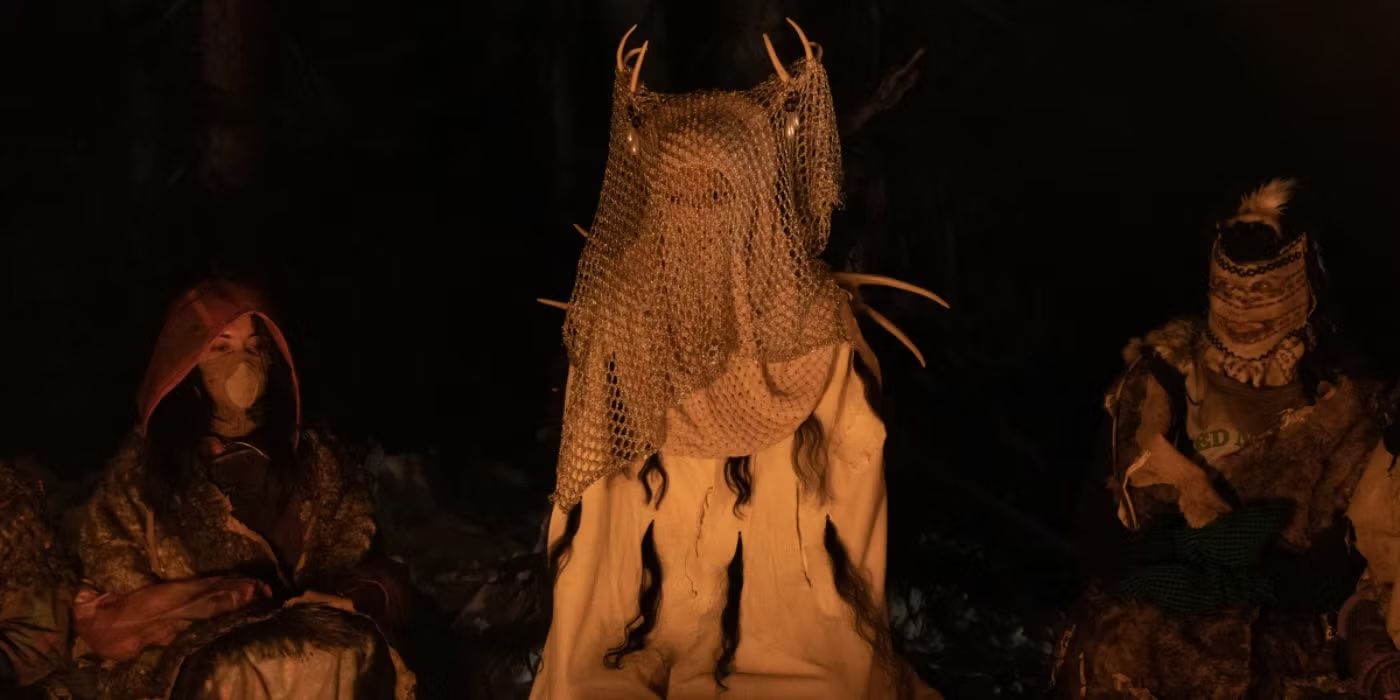
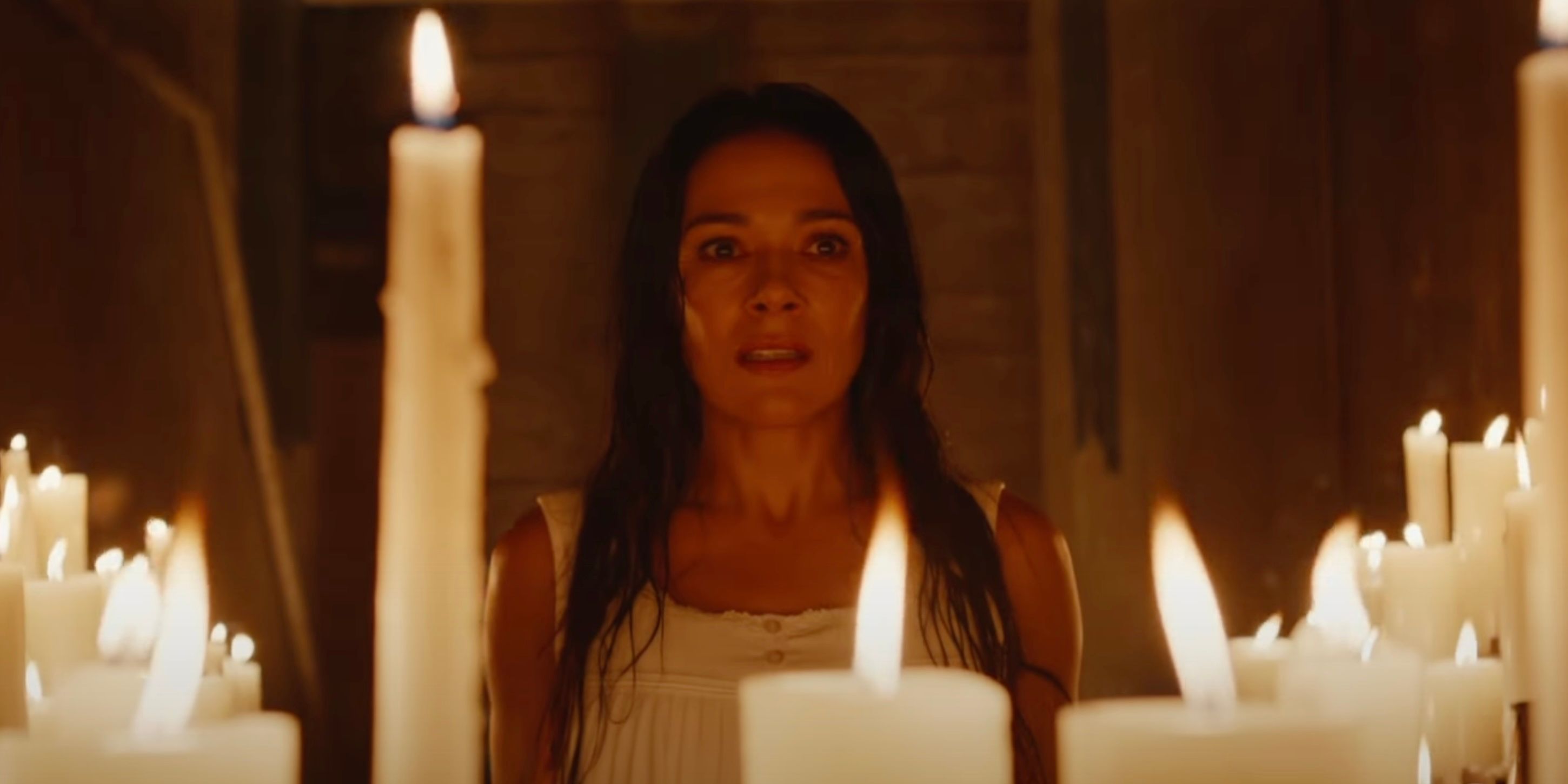

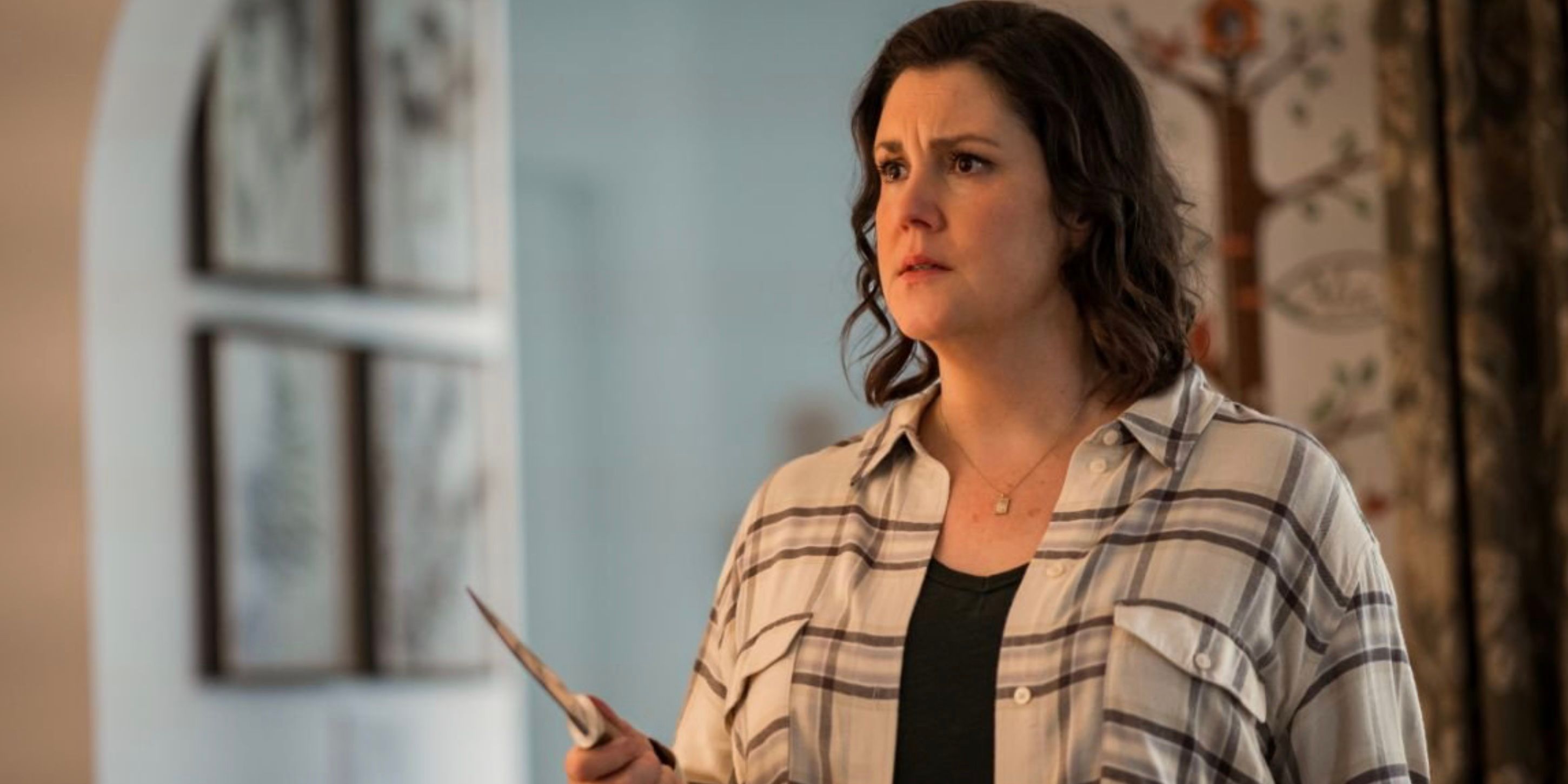
Similarly to “The Handmaid’s Tale,” it features a dominant female cast, and in a twist reminiscent of a gender-reversed “Lord of the Flies,” a high school girls’ soccer team finds themselves stranded in the wilderness after their plane crash en route to a tournament. As they struggle to survive, the situation rapidly deteriorates. The narrative weaves between the past and present day, with the latter following the women 25 years later as they strive to move on from their harrowing experiences.
Compared to The Handmaid’s Tale, Yellowjackets possesses a supernatural element and has left viewers speculating throughout its three seasons so far. Both series share a common theme where women endure hardships and are compelled to make tough choices. However, their relationships evolve in unique ways, sometimes bringing them closer together, and other times driving them apart.
In a dystopian future version of Los Angeles, the city is under control of an oppressive military force called the Transitional Authority, much like how Gilead took over large parts of the United States in ‘The Handmaid’s Tale’. The plot of ‘Colony’, however, centers around extraterrestrials who have invaded Earth, but they exhibit the same cruel and malevolent behavior as the rulers of Gilead.
In this world I inhabit, we’re confined by towering barriers that keep us imprisoned, unable to break free or find a new beginning. Our families are torn apart, forced labor is the norm, and every move we make is watched closely. But much like June and her fellow handmaids in The Handmaid’s Tale, a rebellion starts to stir among us. We’re forming a resistance movement against those who seek to control us unfairly and cruelly. It’s a fresh perspective on the struggle against oppression – a battle for freedom and self-determination.
Much like the narrative found in “The Handmaid’s Tale,” the series “The Leftovers” unfolds as a drama with supernatural undertones. It revolves around an occurrence that mysteriously eliminated 2% of Earth’s population, causing mainstream religions to crumble and giving rise to various cult-like groups. Each group becomes increasingly extreme, leading to inevitable conflicts among them.
A fellow named Holy heads up one of the cults, and he firmly believes he is the Second Return of Jesus Christ. With an abundance of violence, tension, and truly repugnant characters, it’s quite clear how these two series share similarities. For those who appreciate The Handmaid’s Tale, this show would certainly be a captivating choice.
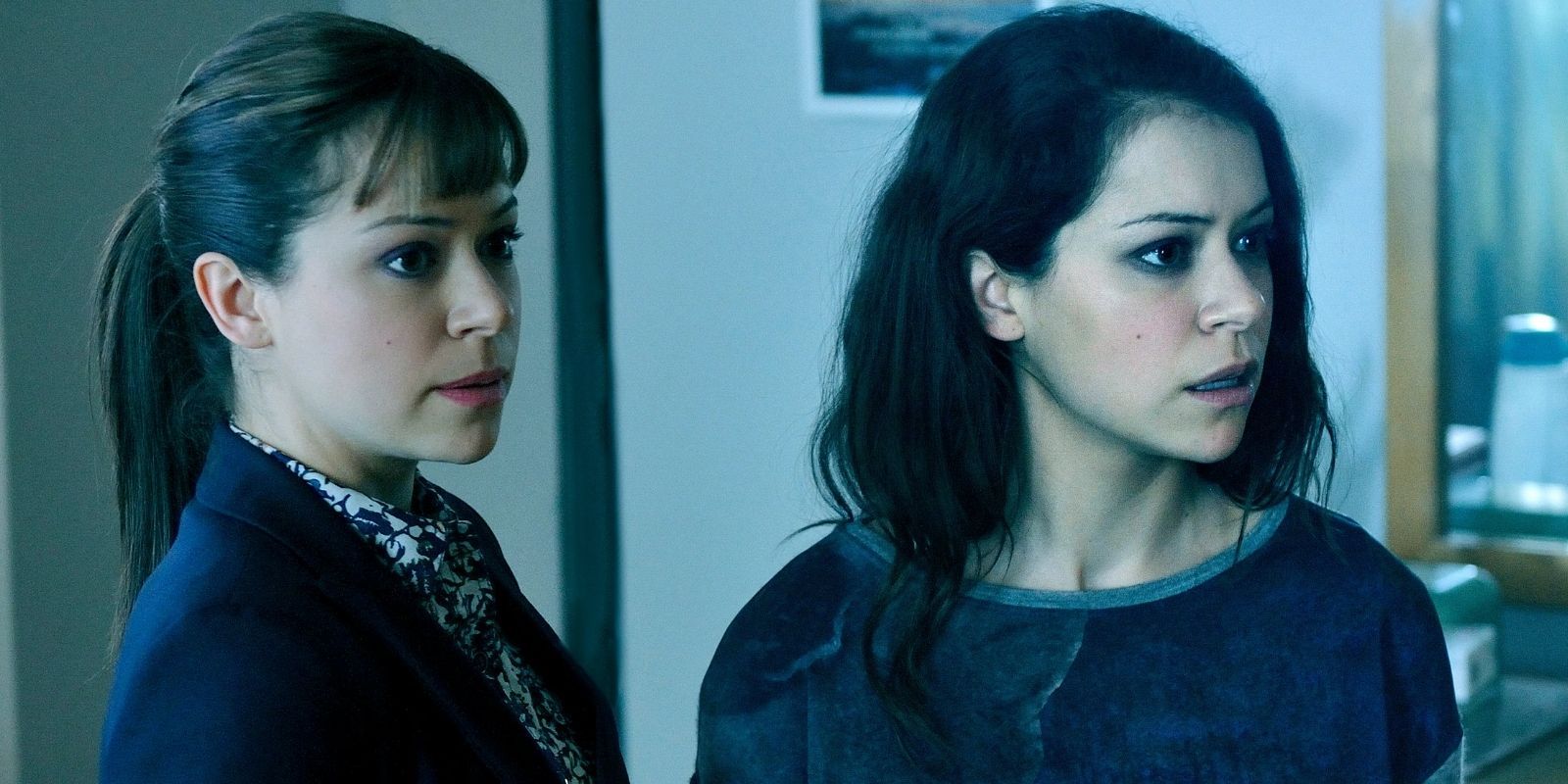
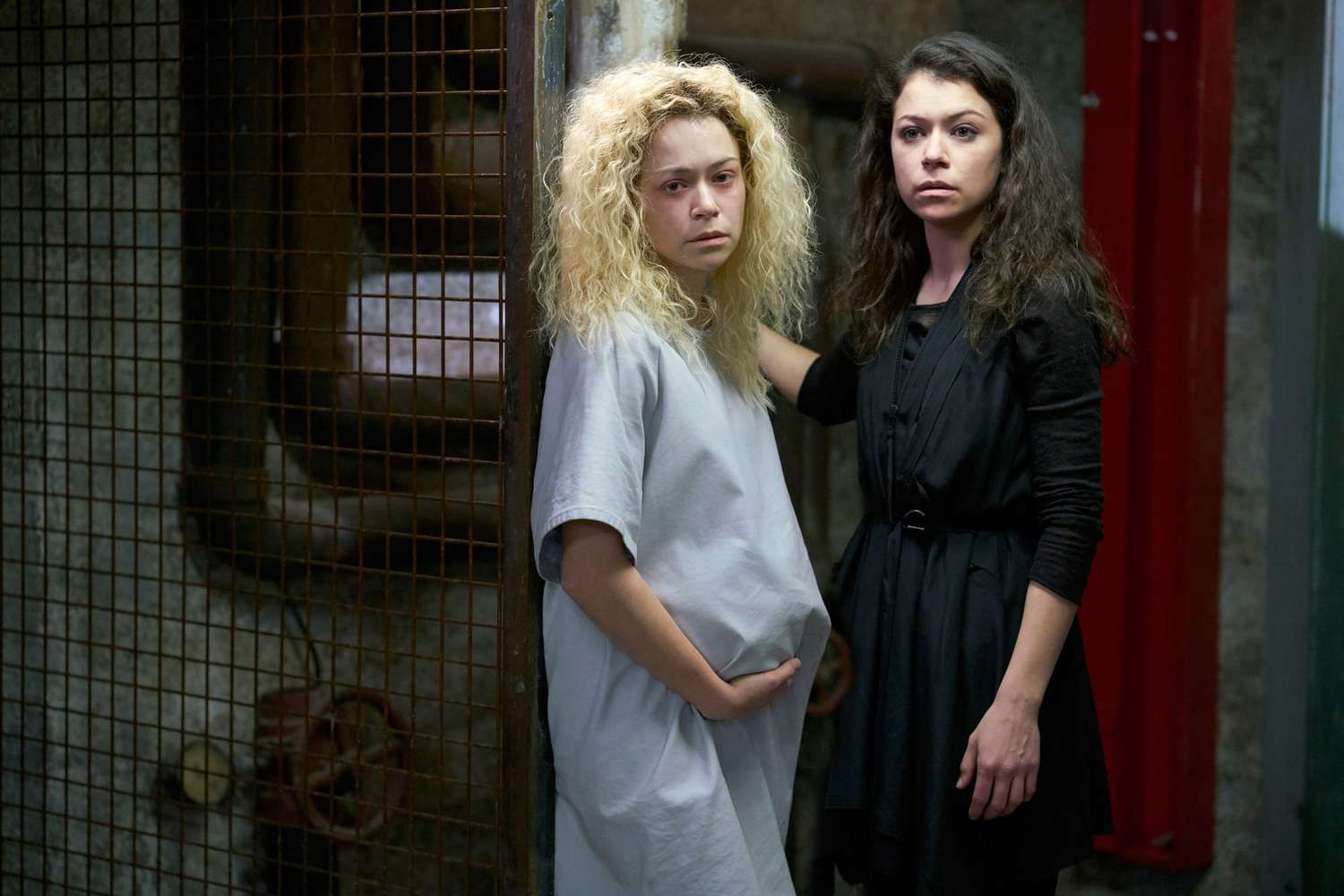
Orphan Black differs significantly from The Handmaid’s Tale, with a unique storyline, yet they share some common themes. What stands out most is the strong female lead character in Orphan Black. In this science fiction-thriller, a feisty young woman named Sarah finds out that multiple clones of her have been created. As she delves deeper into this mystery, encountering more and more clone versions of herself, she uncovers a hidden, nefarious cloning facility.
People who are captivated by Elisabeth Moss’ acting in “The Handmaid’s Tale” will be absolutely amazed by Tatiana Maslany’s performance in “Orphan Black,” where she brilliantly portrays a staggering 17 characters, with five of them being the main characters. Similar to The Handmaid’s Tale, Orphan Black is a remarkable blend of acting and storytelling, revolving around a woman named Sarah, who discovers an organization has manipulated her life without her knowledge, and she sets out to bring them down.
People who enjoyed the tale that author Margaret Atwood wove in “The Handmaid’s Tale” might be interested in exploring “Alias Grace,“, a miniseries derived from another one of her works. Following the story of an Irish immigrant named Grace, who is convicted for murdering her employer and spends 15 years behind bars for the crime, “Alias Grace” gradually uncovers the actual truth about Grace’s life through a series of interviews with a psychiatrist.
As an ardent cinephile who’s deeply moved by Margaret Atwood’s distinctive narrative style, I’d highly recommend Alias Grace for fellow aficionados of The Handmaid’s Tale. This captivating series shares similar themes and the unmistakable imprint of Atwood’s writing, making it a natural choice for fans seeking more from her artistic mind. To add to the excitement, Atwood herself makes a special appearance in the series, portraying a woman in a church scene.
The critically acclaimed miniseries, “Unorthodox,” is based on the true events surrounding Deborah Feldman, a young woman who left behind her traditional Hasidic Jewish life in New York City in search of personal freedom. Unlike June from “The Handmaid’s Tale,” Deborah wasn’t subjected to abuse or forced into ritualistic practices, but she was preparing for an arranged marriage and sought to break free from the confines of her strict religious upbringing.
As a cinephile, I found “Unorthodox” captivating, emotionally raw, and incredibly enlightening. The acting was top-notch throughout the series. It offers a fascinating perspective on how religious devotion can unwittingly confine an individual against their will. Remarkably, it mirrors the struggle that Hannah might encounter in “The Testaments” when she fights for her own aspirations and dreams against traditional norms.
In contrast to the seriousness of The Handmaid’s Tale, Mrs. Davis is a comedic science fiction drama with religious undertones. One unique individual on Earth, Sister Simone, resists the all-powerful AI that governs humanity and refuses to obey its commands, even when she faces punishment for her defiance. However, when Mrs. Davis proposes an agreement to Sister Simone, she finds herself intrigued. Sister Simone then embarks on a journey to locate the Holy Grail, with the promise from the AI that it will destroy itself if she achieves this feat. This offer is too tempting for Sister Simone to resist.
The situation turns out to be tougher than expected as Simone grapples with her past, her faith, contradictory beliefs, and various individuals who firmly believe that the AI is vital for their existence. The conclusion, surprisingly, brings laughter, a stark contrast to the finale of The Handmaid’s Tale, though fans who appreciated the spiritual elements in the former series will find the humorous Mrs. Davis quite appealing.
Originating from Australia, the series titled “The Clearing” offers a gripping psychological thrill ride with its plot drawn from a true cult storyline. A surprising turn in the narrative presents a powerful female leader, reminiscent of Serena in “The Handmaid’s Tale“. The narrative unfolds around a woman, formerly a member of this cult, compelled to confront her chilling past as she endeavors to halt the cult from abducting and brainwashing more vulnerable children.
In simple terms, “The Clearing” by J.P. Pomare is a gripping eight-episode series that shares the disturbing intensity and emotional weight of “The Handmaid’s Tale.” Similar to the Elisabeth Moss-led show, the main plot revolving around a cult that kidnaps children in “The Clearing” is deeply unsettling and heartrending.
Read More
- CRK Boss Rush guide – Best cookies for each stage of the event
- Glenn Greenwald Sex Tape Leak: Journalist Cites “Maliciously Political” Motives
- Fortress Saga tier list – Ranking every hero
- Mini Heroes Magic Throne tier list
- Castle Duels tier list – Best Legendary and Epic cards
- Grimguard Tactics tier list – Ranking the main classes
- How to Prepare and Dominate the Awakened Hollyberry Cookie Update
- Cookie Run Kingdom Town Square Vault password
- Overwatch Stadium Tier List: All Heroes Ranked
- Seven Deadly Sins Idle tier list and a reroll guide
2025-06-01 01:06